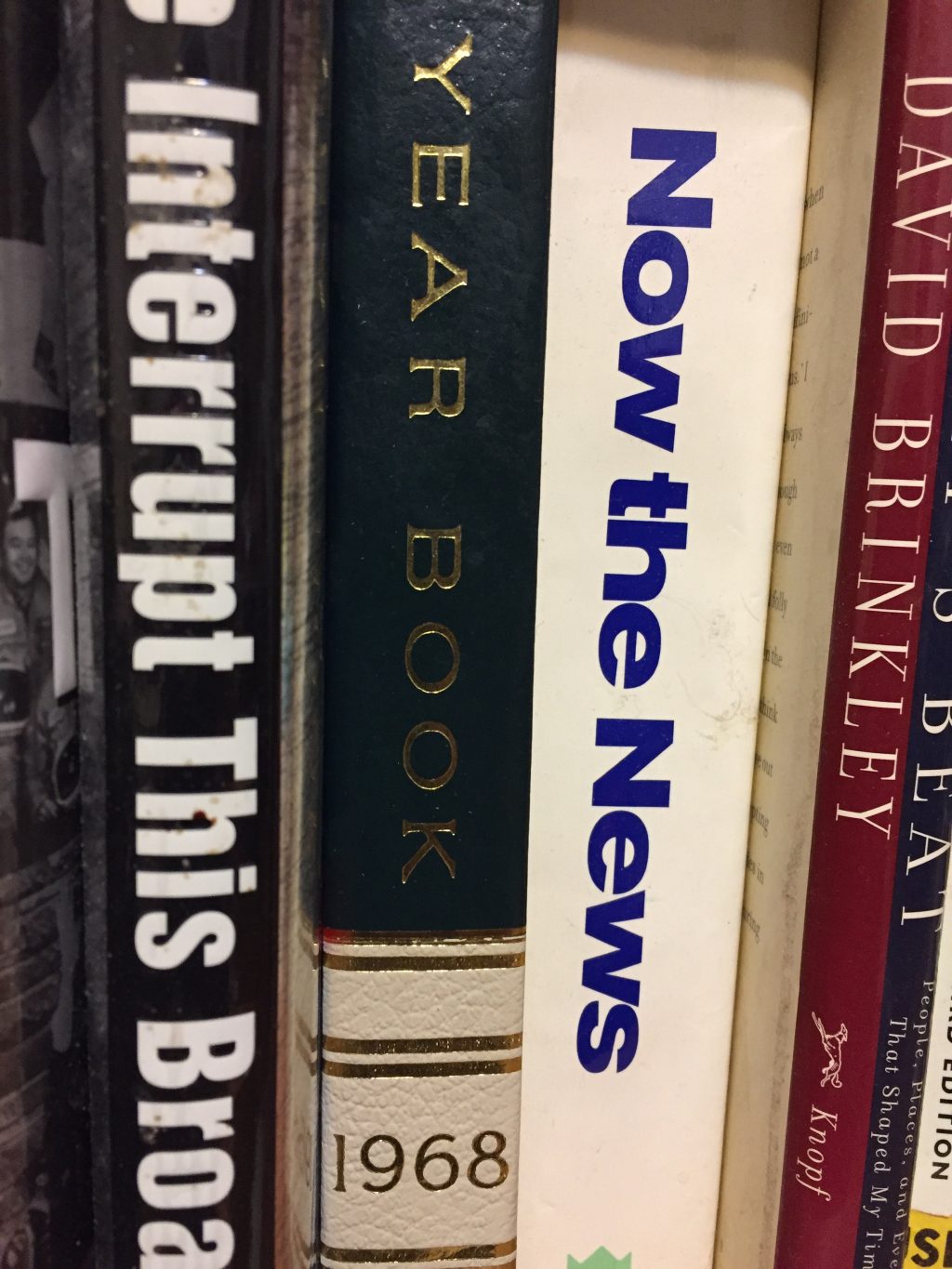1968: A Look Back
It’s a year when Americans witnessed two heartbreaking assassinations and one of the closest presidential elections in U.S. history.

1968. It’s a year that’s unparalleled in recent American history. It started with a major scare for the U.S. military in Vietnam and ended with Apollo 8 orbiting the moon.
It was a year that saw violence in the streets of Paris, Mexico City, and Chicago. It’s a year when Americans witnessed two heartbreaking assassinations and one of the closest presidential elections in U.S. history.
Detroiters spent much of 1968 stunned by the unexpected events taking place around the country.
But it wasn’t all bad. The Tigers managed to win the World Series for the first time in 23 years and there was plenty of great music being produced at Motown.
For many Americans, 1968 was the year when everything seemed to change. The prospect of victory in Vietnam became murkier after the North Vietnamese Army and the VietCong launched the Tet Offensive in January, taking the U.S. military off-guard and leading to battles throughout the South Vietnamese capital of Saigon including inside the U.S. embassy.
The attack led to some strange political results. It emboldened Democratic Senator Eugene McCarthy to challenge President Lyndon Johnson in February’s New Hampshire Primary. The offensive prompted CBS anchor Walter Cronkite to take a closer look into the Vietnam War. In a televised one-hour special, he questioned the ability of the U-S to win in Vietnam.
The report helped to place doubts in the mind of President Johnson. By the end of March, the political pressures of the war became so great that President Johnson decided not to run for re-election. He had been expected to run for a full second term in office.
But, a bigger shock came less than a week later. Doctor Martin Luther King, Junior was shot on the balcony of the Lorraine Motel in Memphis on the evening of April 4th.
Violence broke out in cities across the country in the hours following the news. National leaders and the media worked to keep the peace. President Johnson addressed the nation.
Democratic presidential candidate Robert Kennedy received word of King’s assassination in Indianapolis, just moments before he was scheduled to talk to a crowd of supporters in an African-American neighborhood.
“For those of you who are black and are tempted to be filled with hatred and distrust at the injustice of such an act, against all white people,” said Kennedy.
“I had a member of my family killed, but he was killed by a white man. But we have to make an effort in the United States, we have to make an effort to understand, to go beyond these rather difficult times.”
Indianapolis did not erupt in flames that night.
Meanwhile, the race for the presidency continued. Democratic and Republican candidates tried to win primaries and secure their party’s nomination.
The Democratic race had been fractured by President Johnson’s decision in late March not to run for re-election. The battle for the nomination suffered another blow a couple of months later.
Robert Kennedy was assassinated in Los Angeles on the night of June 5th. He died the next day. His death came only a few weeks after he had campaigned for the presidency in Detroit.
Photographer Andy Sacks had chronicled Kennedy’s trip to Detroit in the spring of 1968. He says he feared he’d finally seen the death of a dream with candidate’s assassination.
“I heard that Robert Kennedy had been killed,” Sacks says.
“I just sort of said ‘Hmm, okay, this is America isn’t it? It was sad. I still get kind of emotional about it. Because we looked at him as a hope for the country. And that hope was gone after he walked into that hotel kitchen in Los Angeles.”
The political chaos of the spring led into the hot summer of 1968. The Republicans nominated Richard Nixon as their candidate during their early August convention in Miami.
A few weeks later the Democrats held their convention in Chicago.
The Democratic convention was plagued with problems from the outset. Protesters had come to Chicago from around the country to protest the Vietnam War. Demonstrators marched down Michigan Avenue and battled law enforcement in what some called “a police riot”.
Americans watched television coverage of police beating defenseless protesters as they chanted, “the whole world is watching”.
Inside the convention hall, security staffers roughed up delegates and reporters, also on live television. Some delegates called for the convention to be postponed and moved to another city, but those calls were largely ignored.
Despite the distractions, delegates still had to choose between numerous presidential candidates, such as Senator Eugene McCarthy, Senator George McGovern and Vice President Hubert Humphrey.
One candidate overshadowed by other events was Channing Phillips. Phillips was the Washington D.C. chair of Robert Kennedy’s campaign. But when Kennedy was killed, his D.C. supporters nominated Phillips to run in his place. What makes this noteworthy is that Channing Phillips became the first African American officially nominated for president by a major political party. He won enough support at the Democratic convention to finish fourth in the balloting.
Detroit Congressman John Conyers seconded Phillips’ nomination at the convention in Chicago.
Vice President Hubert Humphrey won the Democratic nomination. But the televised chaos inside and outside the convention hall damaged the party and his prospects for victory in the general election..
Humphrey lost to Richard Nixon in November in one of the closest presidential elections in U.S. history.
